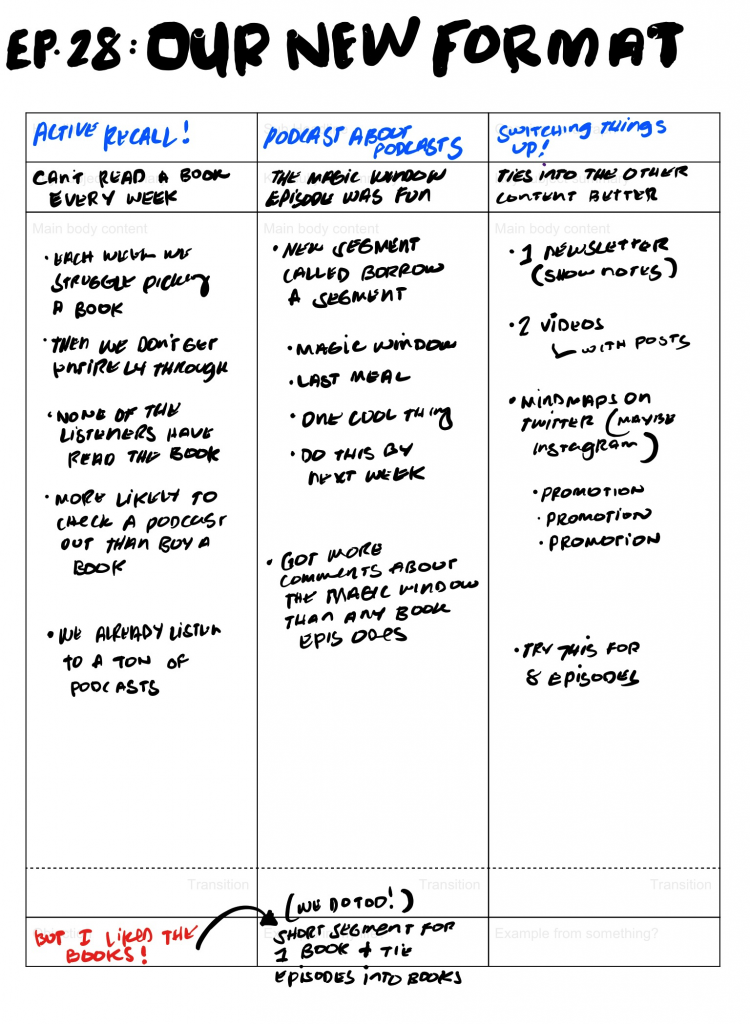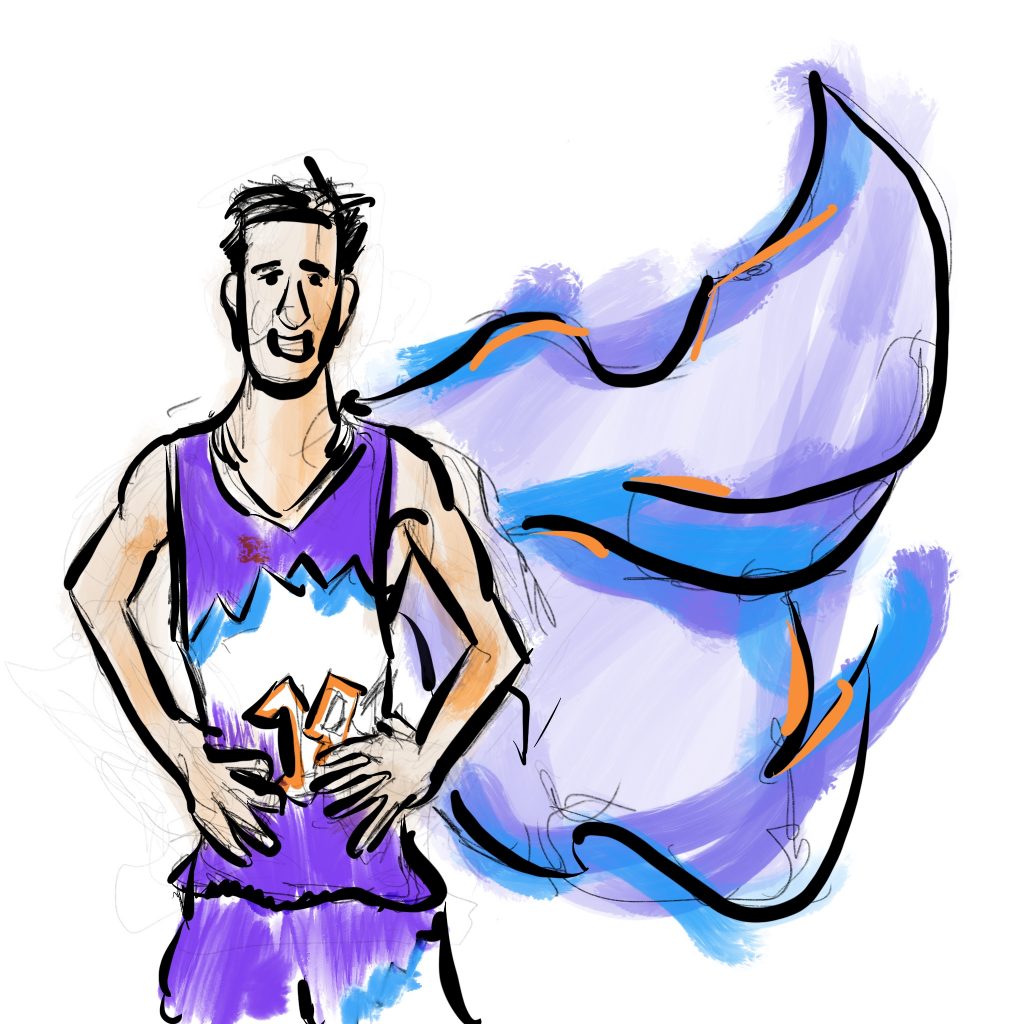Sun’s up, what’s up! That won’t be changing. Some of the show will be changing though. We’re going to try something new. Instead of one book a week we’re going to try switching our focus to podcasts. A podcast about podcasts.
What’s the new format?
Here’s the new format:
- Opening: We’ll start with the usual intro and then say something like “So whatcha listening to?” or like “Heard anything cool lately?” and get into it.
- Recommendations: We’ll each recommend 2 podcast episodes (so 4 total)
- Borrow a segment: From one of the podcasts, we’ll try using one of their segments.
- The magic window: The last segment will be the magic window where we’ll talk about that 9-12 year old range and come up with some kind of favorite thing from then.
What wasn’t working with the old format?
We did a lot of book-of-the-week episodes. Like 24 of our episodes were about a book. Some were better than others. Here are some things that didn’t work:
- We can’t read a book every week: The best episodes were the ones where we all read the entirety of the book and we outlined things and were ready to go. It was also when we actually talked about the book itself. Sometimes we would take high level themes from the book.
- We didn’t connect with authors at all: I never felt comfortable even as much as sharing something in a tweet with an author because, as mentioned, we didn’t actually talk so much about the book in every case. This is a bit ridiculous because (a) it’s unlikely they’d even see the tweet at all and (b) I mean we did sort of talk about the book so if someone was sort of talking about something I made I’d probably find it interesting at least.
- It wasn’t exactly the right niche: I listen to a lot of podcasts and none of them are about discussing nonfiction books. People writing those books actually do interviews on podcasts to promote their books. That’s more interesting than listening to a book summary. I always wanted this podcast to be a non-interview one because some of my favorite podcasts have been non-interview podcasts with 2-3 friends. (Half-baked Ideas with David Jacoby and Kevin Wildes, TADPOG: Tyler and Dave Play Old Games, Joe Rogan when he has Joey Diaz on, Bill Simmons with Cousin Sal or Joe House.)
We aren’t as accomplished or entertaining as those people but I want to aim toward that instead of aiming toward the great interviewers. (Some of the people mentioned are also excellent interviews.)
What the magic window episode revealed
More of my friends commented on the magic window episode than any others. (Which is to say that any commented at all.) My guess is that it was just more interesting to hear about than a self-development book that you’d need to spend money on to read.
At the same time, if we do want to talk about a book, we can talk about a podcast that the author appeared on. I didn’t count it up but I’m sure 80% of the books we talked are written by authors that appeared on some podcast.
I’m hoping this will tie in better with the videos I make and the posts I’m writing. This year was sort of unfocused just trying different things. It’s not wasted time. I have a better idea of what I enjoy making and what I enjoy having made. Making the podcast is the most fun of the different things, probably because talking to a friend is fun. Making the videos actually can be a little bit of a grind but it’s rewarding because strangers actually watch them. Writing posts is rewarding in a weird way because I do enjoy writing even though nobody reads them. And I’m okay with that.
We’ll try this for 8 episodes and see how it goes.
(We will also stop calling podcast recommendations P-Rex because once was enough.)



